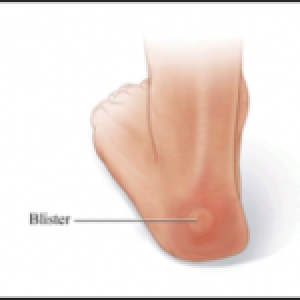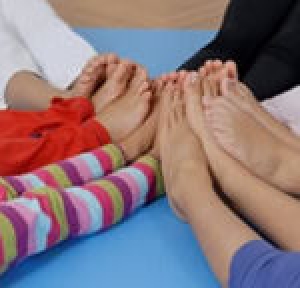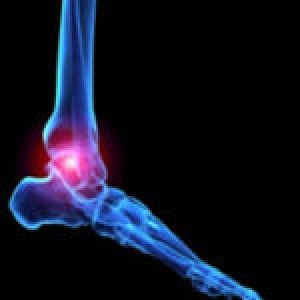Items filtered by date: September 2016
A New Bunion Treatment
A new procedure for bunion treatment involves a less traumatic process of creating incisions and shaving down the bone that forms the bunion, a safer and less painful alternative to traditional bunion surgery. The standard bunion surgery involves breaking a toe bone and inserting pins. Recovery time for the new procedure is less, ranging about a week, allowing patients to quickly resume their lives post-treatment.
Untreated bunions can make walking uncomfortable. If you are suffering from bunions, contact Dr. Kenneth Donovan from Advanced Care Foot and Ankle will attend to all of your foot and ankle needs and answer any of your related questions.
What is a Bunion?
A bunion is formed of swollen tissue or an enlargement of boney growth, usually located at the base joint of the toe that connects to the foot. The swelling occurs by the bones in the big toe shifting inward, which impacts the other toes of the foot. This causes the area around the base of the big toe to become inflamed and painful.
Why do Bunions Form?
- Genetics – susceptibility to bunions are often hereditary
- Stress on the feet – poorly fitted and uncomfortable footwear that places stress on feet, such as heels, can cause bunions to form
How are Bunions Diagnosed?
Doctors often perform two tests – blood tests and x-rays – when trying to diagnose bunions, especially in the early stages of development. Blood tests help determine if the foot pain is being caused by something else, such as arthritis, while x-rays provide a clear picture of your bone structure to your doctor.
How are Bunions Treated?
- Refrain from wearing heels or similar shoes that cause discomfort
- Select wider shoes that can provide more comfort and reduce pain
- Anti-inflammatory and pain management drugs
- Orthotics or foot inserts
- Surgery
If you have any questions, please feel free to contact our office located in Warren, Livingston, and Toms River, NJ. We offer the newest diagnostic and treatment technologies for all your foot care needs.
DIY Pedicures
Pedicures are very important when it comes to maintaining healthy feet. Prior to giving yourself a pedicure, you should soak your feet in hot water with bath salts or oils. Soaking your feet will help soften calluses and remove any unwanted particles from your skin. The next step in your DIY pedicure is to trim your toenails. Trimming your toenails will help prevent dirt from being trapped underneath them. You should be careful to cut straight across when trimming your nails, in order to prevent ingrown toenails. Be sure to file your nails in the same direction in order to avoid damaging your nails.
Every day foot care is very important to prevent infection and other foot ailments. If you need your feet checked contact Dr. Kenneth Donovan from Advanced Care Foot and Ankle. Our doctor can provide the care you need to keep your pain free and on your feet.
Every Day Foot Care
Often, people take care of their bodies, face and hair more so than they do for their feet. But the feet are a very important aspect of our bodies, and one that we should pay more attention to. After all, without our feet, we would not be able to perform most daily tasks. It is best to check your feet regularly to make sure there are no new bruises or cuts that you may not have noticed before, for example.
For dry feet, moisturizer can easily be a remedy and can be applied as often as necessary to the affected areas. Wearing shoes that fit well can also help you maintain good foot health, as well as making it easier to walk and do daily activities without the stress or pain of ill-fitting shoes, high heels, or even flip flops.
Also, wearing clean socks with closed shoes is important to ensure that sweat and bacteria do not accumulate within the shoe. Clean socks help to prevent athlete’s foot, fungi problems, bad odors, and can absorb sweat.
If you have any questions please feel free to contact one of our offices located in Warren, Livingston, and Toms River, NJ. We offer the newest diagnostic and treatment technologies for all your foot and ankle needs.
Arthritis and Foot Pain
Approximately one fourth of American adults have foot pain.For those who have arthritis, their chances of suffering from foot pain increases. Fifty percent of Americans over the age of 65 suffer from arthritic foot pain. There are different types of arthritis that a person could have.. Rheumatoid Arthritis is a common form that can affect the small joints of the feet. People with the condition often develop corns, bunions, and hammertoe.
Arthritis can be a difficult condition to live with. If you are seeking treatment, contact Dr. Kenneth Donovan from Advanced Care Foot and Ankle. Our doctor can provide the care you need to keep you pain-free and on your feet.
Arthritic Foot Care
Arthritis is a joint disorder that involves inflammation of different joints in your body, such as in your feet. Arthritis is often caused by a degenerative joint disease and causes mild to severe pain in all affected areas. On top of this, swelling and stiffness in the affected joints can also be a common symptom of arthritis.
In many cases, wearing ill-fitting shoes can worsen the effects and pain of arthritis. Wearing shoes that have a lower heel and extra room can help your feet feel more comfortable. In cases of rheumatoid arthritis, the arch in your foot may become problematic. Buying shoes with proper arch support that contour to your feet can help immensely.
Alleviating Arthritic Pain
- Exercises that stretch the foot can prevent further pain and injury and increase mobility
- Most of the pain can be alleviated with anti-inflammatory drugs, heat, and topical medications
- Massages can help to temporarily alleviate pain.
It is best to see your doctor for the treatment that is right for your needs and symptoms. Conditions vary, and a podiatrist can help you determine the right method of care for your feet.
If you have any questions please feel free to contact one of our offices located in Warren, Livingston, and Toms River, NJ. We offer the newest diagnostic and treatment technologies for all your foot and ankle needs.
Pregnancy May Have an Impact on Feet
With pregnancy comes the expectation that our bodies will change in different ways, one of them being that our feet swell up. As our feet can grow in size, this means that our shoe sizes may increase as well. Make sure to accommodate your feet during pregnancy, especially since the increase in foot size may become permanent. However, expert Jessica Shepherd, M.D., says that the increase in size “usually goes away within six months to a year postpartum.”
Pregnant women with swollen feet can be treated with a variety of different methods that are readily available. For more information about other cures for swollen feet during pregnancy, consult with Dr. Kenneth Donovan from Advanced Care Foot and Ankle. Our doctor will attend to all of your foot and ankle needs.
What foot problems can arise during pregnancy?
One problem that can occur is over-pronation, which occurs when the arch of the foot flattens and tends to roll inward. This can cause pain and discomfort in your heels while you’re walking or even just standing up, trying to support your baby.
Another problem is edema, or swelling in the extremities. This often affects the feet during pregnancy, but tends to occur in the later stages.
How can I keep my feet healthy during pregnancy?
- Wearing orthotics can provide extra support for the feet and help distribute weight evenly
- Minimize the amount of time spent walking barefoot
- Wear shoes with good arch support
- Wear shoes that allow for good circulation to the feet
- Elevate feet if you experience swelling
- Massage your feet
- Get regular, light exercise, such as walking, to promote blood circulation to the feet
If you have any questions please feel free to contact one of our offices located in Warren, Livingston, and Toms River, NJ. We offer the newest diagnostic and treatment technologies for all your foot and ankle needs.




